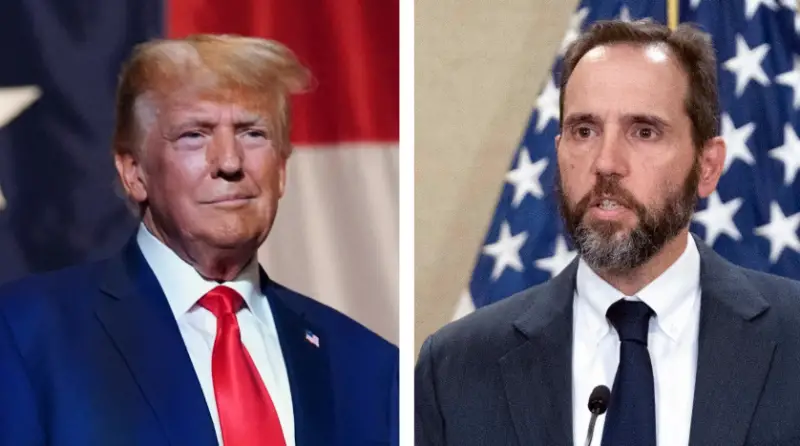Trump Motion Approved In Docs Case
Former President Donald Trump has won a procedural battle in the ongoing classified documents case against him. U.S. District Judge Aileen Cannon has ordered that unredacted versions of filings containing the names of government witnesses be released to the public. The ruling comes after special counsel Jack Smith failed to provide a sufficient factual or legal basis for keeping the documents redacted.
The case is titled United States of America v. Donald J. Trump, Waltine Nauta, and Carlos de Oliveira. Special Counsel Jack Smith had sought to preserve the redactions of court filings that contained information about government witnesses. However, news organizations, including The Associated Press, The New York Times, The Washington Post, CNN, Fox News, the Miami Herald, and The Palm Beach Post, filed a motion to intervene and urged the court to ensure that the redactions were fully justified.
In her decision, Judge Cannon sided with the First Amendment and ruled that unredacted filings should be released, with only a few exceptions. This means that the public will have access to previously undisclosed information regarding the case. This is a significant win for the media and the public’s right to know.
Trump’s demand for additional discovery seems to have pushed Jack Smith’s team over the edge. In a ranty 67-page filing, Smith’s team “sets the record straight” arguing they are allowed to withhold evidence and that Trump’s defense has all the discovery they are entitled to under… pic.twitter.com/gw9BVyFpKI
— Robert Gouveia Esq. (@RobGouveiaEsq) February 6, 2024
Judge Cannon stated that Special Counsel Smith’s response to keep the documents redacted failed to provide the necessary factual basis to justify this claim. According to the judge, Smith’s argument that revealing witnesses could jeopardize their safety and open them up to intimidation was not adequately supported. She further added that even if these concerns were valid, there was no concrete evidence to support them.
The judge also denied Smith’s request to shield the FBI code name of a separate investigation. In her ruling, she noted that the government failed to adequately support its request, and there was no explanation of how disclosing the code name would prejudice or jeopardize the integrity of the investigation.
It is clear that keeping these government witnesses a secret from Trump and his lawyers was a particular need for Special Counsel Smith. However, with this ruling, the public may finally learn more about these key witnesses and their involvement in the case. This information could potentially shed new light on the ongoing legal battle between Trump and the federal government.
News organizations and observers of this case are eagerly awaiting the unredacted filings, which are expected to be submitted to Judge Cannon for review by Friday. If these filings meet her demands, they will be unsealed, allowing the public to have access to previously undisclosed information.
HOLD THE CHAMPAGNE JACK SMITH:
Judge Cannon, as expected, just threw cold water on DOJ’s win in DC appellate court today.
She grants in part Trump’s request to unseal some discovery that Jack Smith wants to keep under wraps: pic.twitter.com/ROiUc8Hm5a
— Julie Kelly 🇺🇸 (@julie_kelly2) February 7, 2024
This ruling highlights the importance of transparency in the justice system and the role of the media in holding the government accountable. It also serves as a reminder that the presumption of public access to court records should not be easily overridden.
As this case continues to unfold, it will be interesting to see the information that will be revealed through the unredacted filings. It is possible that this could have an impact on the outcome of the case and potentially even Trump’s legal troubles.
With this success, news organizations have proven that they are willing to come together to protect the public’s right to know. The judge’s ruling sets an important precedent for future cases, emphasizing the need for factual and legal justification for withholding information from the public. The fight for transparency and accountability in the justice system continues, and this ruling is certainly a significant step in the right direction.


